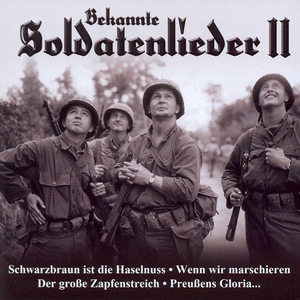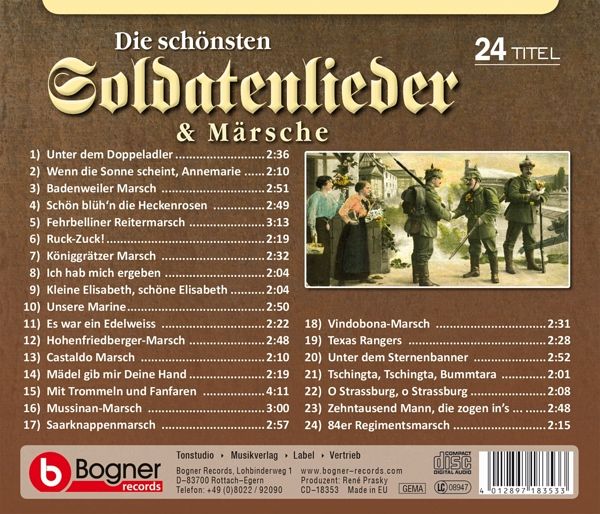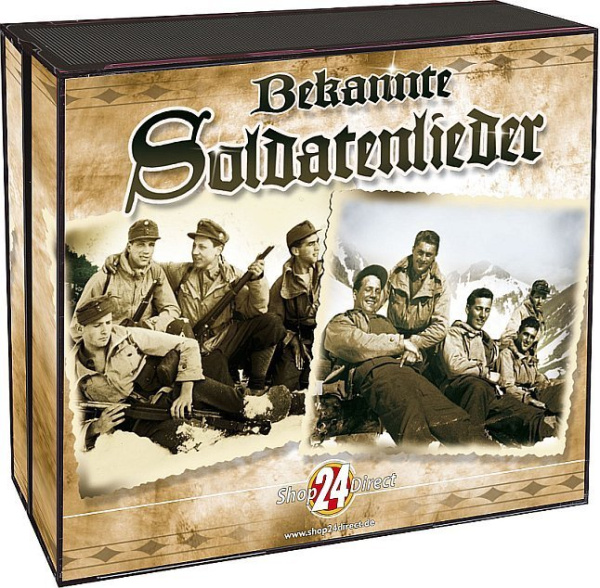

While certainly the Red Army and the Soviet Union had its share of atrocities, the inheritance it bestowed on the Russian Federation vs. It too is essentially a wistful love song much like Erika-but again, here we see a common association with the Red Army despite the fact that it has since become a folk song in modern-day Russia. One can also look at another contemporary song from the Soviet Union-the song Katyusha-which was written in the late 1930s and became a popular song among the Red Army. This song has been thoroughly dissociated with the Nazi regime despite its origin for this reason, although it is still closely-associated with WW2. This song was later re-recorded for Allied forces by the German-American actress Marlene Dietrich (not entirely coincidentally), where it became so popular she later gave live shows to US forces operating in France and Germany. The lyrics were roughly as innocuous as those of Erika (both essentially are wistful love songs) except this song also happened to be popular with Allied troops operating in North Africa, who were able to pick up the radio waves from what is now Serbia. I will compare the song with another contemporary piece: "Lili Marleen," which was first recorded in 1939 and was made popular by the German controlled Radio Belgrade in 1941.

Even songs that were more distantly related than Erika were censored to varying extents-the Deutschlandlied had been in existence well before the rise of the NSDAP and yet it has been completely changed in the current German anthem due to the association of it with the Nazi regime. The very fact that if I search for the song "Erika" and am immediately confronted with results depicting WW2 German soldiers and other Nazi symbols attests to this association. While certainly the song remained popular after the war, it was primarily because of how popular it was among German soldiers, much like the American song "Dixie" is well-known even today despite the fact that it is absolutely tied to the Confederate States of America. I would argue that the song is very difficult to dissociate from the Nazi regime for this reason.
Soldatenlieder verboten movie#
The song itself was very popular in the Wehrmacht and the Waffen-SS and is heavily associated with Nazi Germany in numerous media such as the 1993 movie Schindler's List where it is used as a Nazi motif. "Erika", lyrics and recordings, ingeb.Erika was written at some point in the 1930s by Herms Niel, who became what essentially was a musical propagandist for the Nazi regime after the Nazi rise to power in 1933.^ "Auf der Heide blüht ein kleines Blümelein (Erika)",.Oliver Seibt, Martin Ringsmut, David-Emil Wickström. ^ Made in Germany: studies in popular music."Songs soldiers sang in the face of battle". Institut für Soziologie, Albert-Ludwigs-Universität Freiburg.


Modernisierung im Nationalsozialismus? : Eine soziologische Kategorie und Entwicklungen im deutschen Schlager 1933–45 ( magister thesis) (in German). " by Leonore Böhm, Der neue Tag (Weiden in der Oberpfalz) ( Grafenwöhr), 17 October 2008. After each line, and after each time the name "Erika" is sung, there is a three beat pause, which is filled by the kettledrum or stomping feet (e.g. The song begins with the line "Auf der Heide blüht ein kleines Blümelein" (On the Heath a Little Flower Blooms), the theme of a flower (Erika) bearing a soldier's sweetheart's name. It was exclusively played at large political events. The song encourages hard work, and according to Michael Tillotson, no other marching song during World War II reached the popularity of Erika. It had been popular prior to the start of World War II. The song was originally published in 1938 by the publishing firm Louis Oertel in Großburgwedel. The exact year of the song's origin is not known often the date is given as "about 1930", a date that, however, has not been substantiated. The lyrics and melody of the song were written by Herms Niel, a German composer of marches. " Erika" is both a common German female name and the German word for heather.


 0 kommentar(er)
0 kommentar(er)
